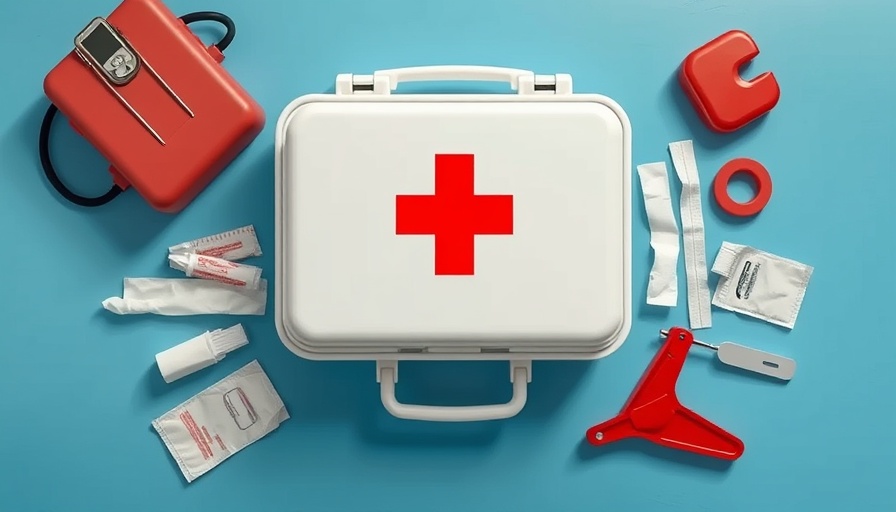
The Importance of First Aid Training in Today's World
In a crisis, the ability to respond quickly can make a life-or-death difference. First aid training not only equips individuals with the skills to handle emergencies, but it also fosters a sense of community responsibility and preparedness. As anxiety levels rise amidst various societal challenges, including economic stress and health concerns, the value of first aid training cannot be overstated.
Building Confidence: How First Aid Training Can Empower Individuals
Understanding first aid reduces anxiety about emergencies. The knowledge that one can effectively respond to situations such as heart attacks or injuries not only alleviates personal fears but also empowers those around them. This empowerment plays a crucial role in enhancing mental well-being as it gives people a sense of control—especially crucial for individuals dealing with anxiety disorders, as feelings of helplessness can exacerbate conditions like generalized anxiety disorder or social anxiety.
First Aid Training and Community Health: A Mutual Benefit
Communities with high awareness of first aid are better equipped to handle emergencies more effectively. Training provides individuals from various backgrounds—including families, students, and professionals—the skills necessary to promote health and safety. Furthermore, this knowledge enhances mental health awareness and can lead to more proactive approaches in mental health education, kid-friendly safety campaigns, and community outreach initiatives.
Addressing Mental Health Through First Aid
Recent trends emphasize the connection between physical first aid and mental health first aid. Just as one can learn to manage a bleeding wound, there are strategies for supporting someone undergoing a panic attack or dealing with phase transitions in mental health issues. Programs that teach individuals how to offer support—whether through listening, providing relaxation techniques, or recognizing anxiety symptoms—can significantly impact community health.
Integrating Mental Health Education into First Aid Training
As public awareness of mental health challenges, such as PTSD and anxiety in children, grows, it's becoming clear that first aid training should encompass mental health awareness. Courses could include modules on recognizing crises, such as job loss or illness, and learning about early intervention strategies. Topics such as coping strategies, mindfulness methods, and even self-care are essential elements that should be woven into this vital training.
Conclusion: A Call to Action for All
Everyone—be it a caregiver, educator, student, or average individual—should invest time in gaining first aid training. Not only does it provide crucial skills for addressing physical injuries, but it also offers tools to navigate mental health challenges within communities. We must advocate for comprehensive first aid training that embraces both physical and mental preparedness. This will not only lead to healthier communities but will also foster resilience and emotional intelligence among individuals. Let's take action today to prioritize this invaluable skill that stands to benefit everyone.
 Add Row
Add Row  Add
Add 




Write A Comment